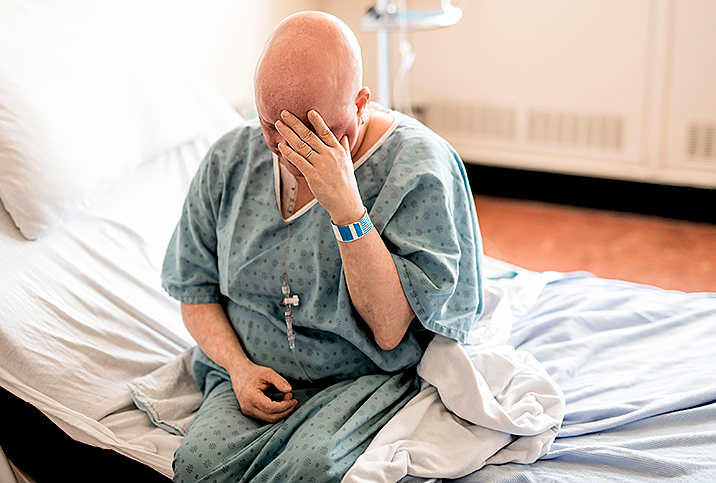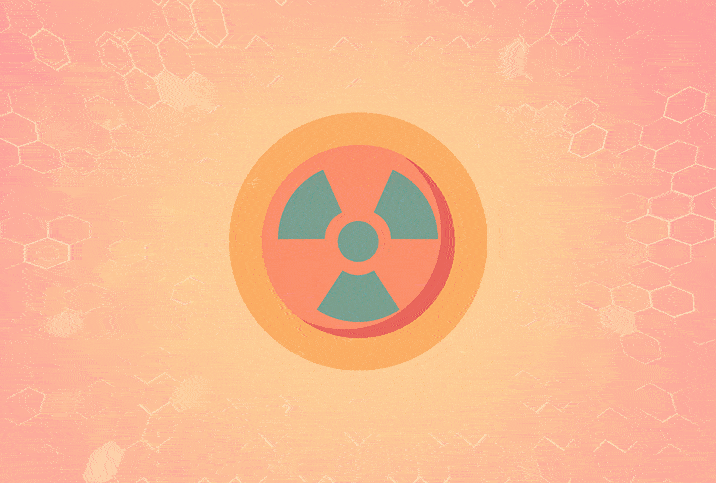Erectile Dysfunction After Bladder Cancer Treatment Is Likely

Any cancer could potentially cause sexual dysfunction, but "pelvic malignancies," including bladder cancer, have the highest rates of creating this problem, according to a 2021 review in Urologic Clinics of North America journal.
Of the potential issues, erectile dysfunction (ED) looms large for many men. It can affect people of any age, especially those older than 50, and the likelihood of erectile dysfunction after bladder cancer treatment increases.
"As we age, our erectile dysfunction rates definitely increase, and the ability to come back to your baseline post an insult—primarily surgery—is much more difficult when you're older versus younger," said Sima Porten, M.D., M.P.H., an associate professor in residence in the urology department at the University of California, San Francisco.
Treatments for this heterogeneous disease run the gamut from surgeries that remove the bladder—and sometimes the prostate and lymph nodes along with it—to endoscopic resections of bladder tumors, said David Barham, M.D., a urologist affiliated with the medical center at the University of California, Irvine, in an email.
"There is also a role for radiation therapy and chemotherapy in the treatment of bladder cancer," Barham added. "Ultimately, all of the treatments can have some impact on sexual function."
Bladder cancer surgery and sexual dysfunction
Radical cystectomy, the surgical removal of the bladder, is "the gold standard treatment" for invasive bladder cancer, Barham said, adding that this procedure often is associated with erectile and ejaculatory dysfunction after surgery. He said the goal for physicians usually is cancer control first and then optimizing the patient's quality of life by treating the side effects.
The radical cystectomy may entail the removal of another organ as well. The relevant literature to date suggests men undergoing treatment for bladder cancer are most likely to develop ED when large-scale, organ-removing surgeries are performed. With invasive bladder cancers, radical cystoprostatectomy—the excision of the bladder and prostate—coupled with lymph node dissection and urinary diversion becomes the go-to treatment option.
"For bladder cancer, I would say what most people would consider as the gold standard is not only do we remove the bladder, but in men, we also remove the prostate. That's due to the anatomic configuration of the bladder and the prostate and [because] part of the bladder tissue funnels into the prostate and can become a source of [cancer] recurrence down the line," Porten said.
'For bladder cancer, not only do we remove the bladder, but in men, we also remove the prostate.'
The nerves that control erectile function run like a web or a net through and around the prostate area, she added. When surgeons remove the bladder and the prostate, they tend to partially transect or remove many of the nerves that emerge from the spinal cord and control the ability to achieve an erection. They need to do so, however, to get clean margins, meaning there are no cancer cells at the outer edge of tissue that was removed.
"So it's a very structural cause of erectile dysfunction in men," Porten concluded.
When the bladder is removed, various reconstructive techniques can be used to create a new reservoir for urine, according to Barham. Connecting the intestines to the urinary tract is one method for creating a functional neobladder of sorts.
"Obviously, the different reconstructive techniques can have impacts on body image, which can also impact sexual function," he noted.
Other bladder cancer treatments and ED
Options other than surgery are available for the treatment of lower-grade bladder cancer, Barham said.
"Typically, endoscopic treatments with or without intravesical treatments—chemotherapy or immunotherapy treatments instilled into the bladder directly—are associated with less sexual dysfunction, and when present, [it] is usually temporary," he explained.
Porten mentioned chemoradiation, which combines chemotherapy with radiation therapy, as another treatment modality that can lead to sexual and erectile dysfunction due to a number of different causes.
Research into chemotherapy used to treat different cancers suggests the treatment can be a "multifactorial" source of ED, she said, and can negatively affect mental or emotional facets that contribute to the complications. Physical side effects on energy and mood, some of which can also undercut confidence, might lead to ED as well.
"For radiation, similarly, you're delivering a dose of a treatment that is supposed to be toxic to the tissue," Porten said, adding that as relevant research focused on prostate and rectal cancers has shown, negative sexual side effects from radiation often don't show up until a few years post-treatment.
"The collateral damage to your other tissues, particularly to the little blood vessels and some of the neurovascular networks in that area that provide erectile function, those sustain a damage that takes a little while to manifest," Porten said.
That's in contrast to surgery, which can cause abrupt and immediate issues with sexual function.
Porten said instrumenting the urethra—for example, inserting a camera into the penis, past the prostate and into the bladder—can cause some patients to report a decline in overall sexual health or function. Given the sensitivity of the area, those problems probably shouldn't be a surprise, though Porten pointed to the lack of a clear etiology for the condition.
Preventing ED when treating bladder cancer
Modalities intended to spare the prostate when treating bladder cancer to better preserve erectile function are supported by emerging data, according to Porten, although they're not yet standard care and medical professionals approach them with caution. The safety of these methods is under active investigation.
"The main reason for caution is that the recurrence rate can be very high in that area," she said.
There aren't yet trusted techniques to preserve sexual function, though good nutrition and proper control over other health problems are helpful regardless, according to Parham.
Noninvasive cancer can be treated with transurethral resection of a bladder tumor, Porten said. The surgical procedure is useful for early-stage, nonmuscle-invasive cancers. It involves the insertion of a thin tube called a resectoscope, which has a camera and a wire loop, into the urethra to get to the bladder. There, the loop can be used to scrape off and extract cancerous cells, according to Cancer Treatment Centers of America.
A camera with working tools can also be used to enter the bladder by way of the body's natural orifices to scrape away the tumor inside, which is more likely to aid the preservation of erectile function because organs aren't removed, Porten said.
"But patients have noticed that during these procedures and treatments, as they're happening, that they experience a decline in their sexual function," possibly due to the procedure itself or the repeated instrumentation deployments, she explained.
Addressing ED after treatment
Porten said intracorporeal injection of medication, similar to oral ED drugs used to dilate blood vessels and enable blood flow into the erectile body, might be tried if problems related to sexual function arise following surgery or other therapies.
"We end up employing some of the same strategies and the same kind of treatment team—or referrals or specialists—to help manage erectile function," following invasive surgery, she added.
Barham echoed her in suggesting that addressing erectile dysfunction after bladder cancer intervention tends to reflect the route used to treat men with ED who haven't had cancer or undergone treatment for it.
"However, after cystectomy and removal of the prostate, the nerves which contribute to erection can be damaged," he elaborated. "Because of this, men may be less likely to respond to pills or even intracavernosal injections. Penile implants can be a good option when these less invasive options fail."


















